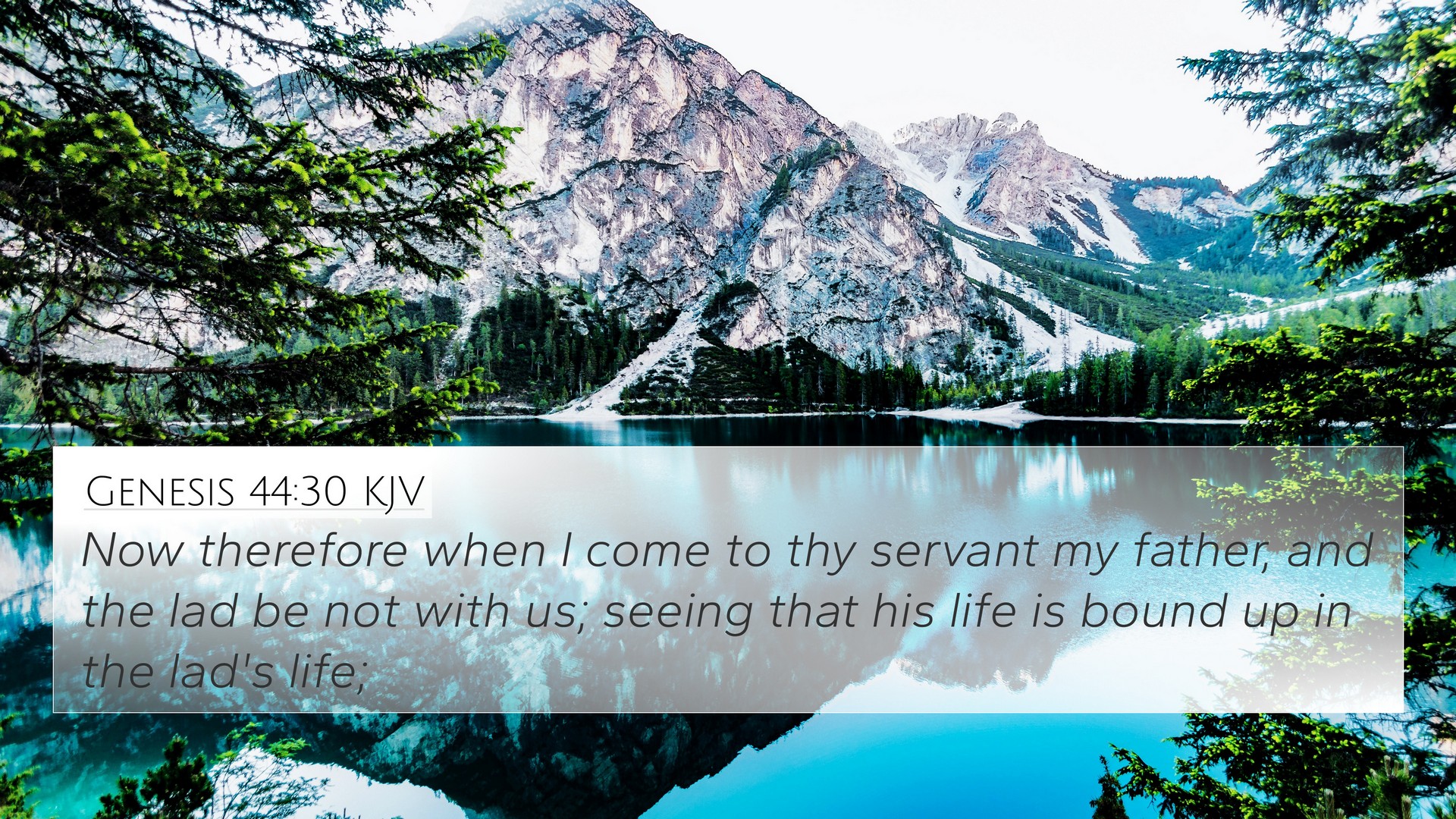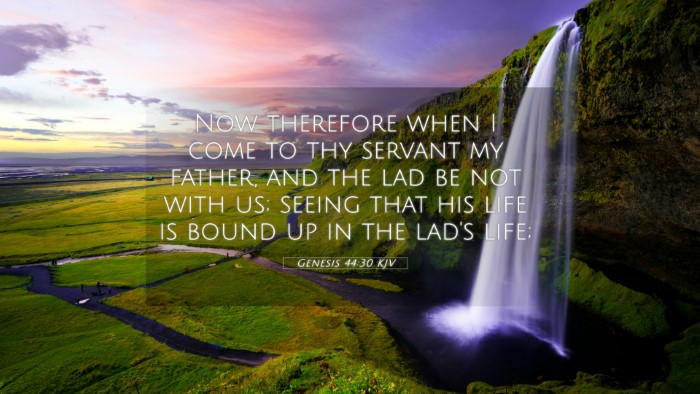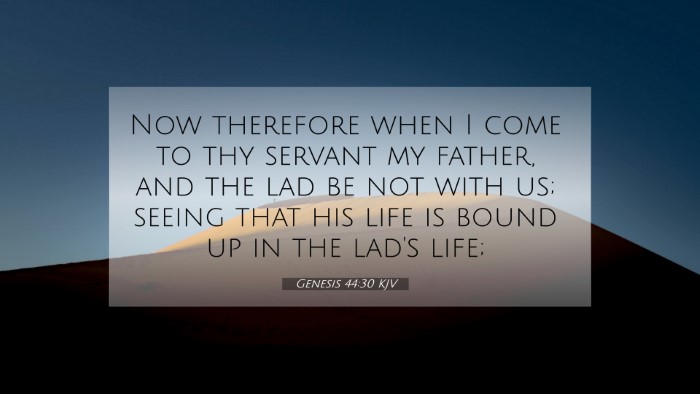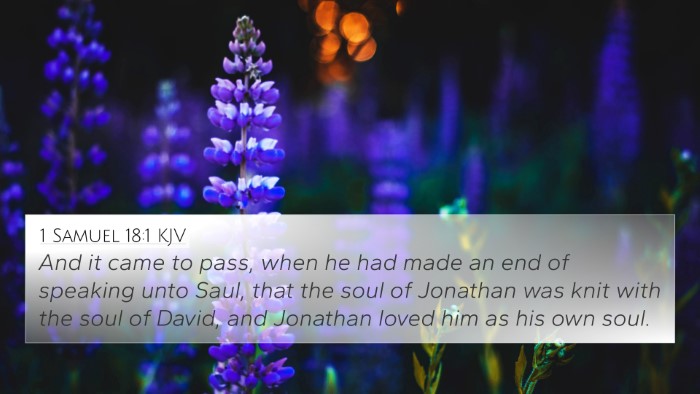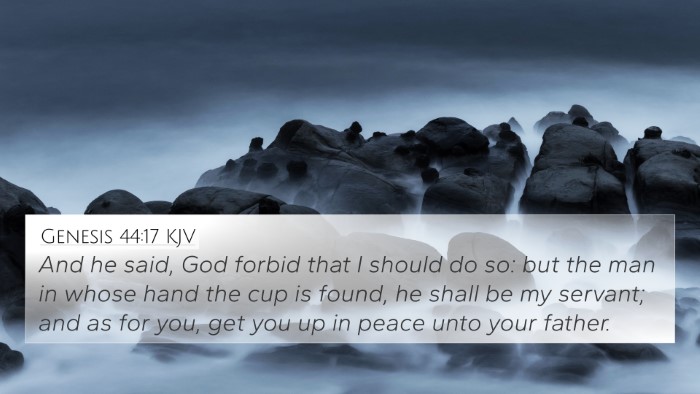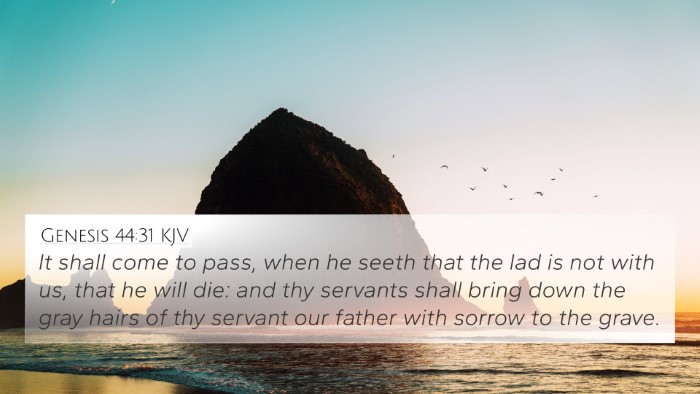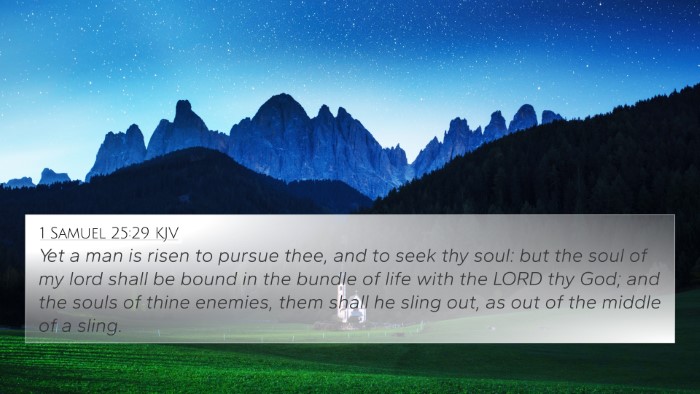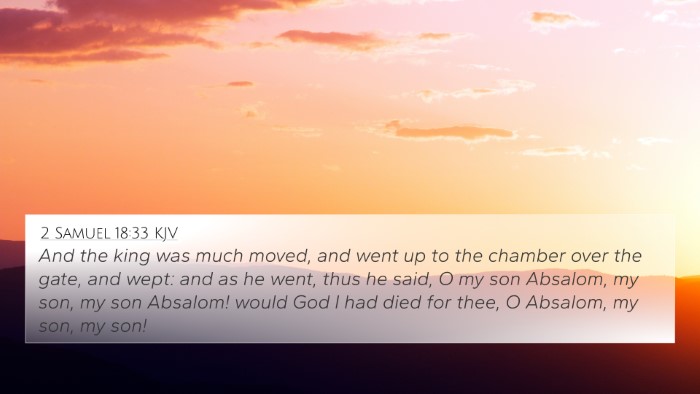Genesis 44:30: "Now therefore when I come to thy servant my father, and the lad be not with us; seeing that his life is bound up in the lad's life;"
This verse is a poignant moment in the narrative of Joseph and his brothers, specifically highlighting Judah's heartfelt plea and the moral dilemma facing them.
Summary of Meaning
The key themes in this verse revolve around family loyalty, responsibility, and the emotional weight of relationships. Judah expresses the profound connection between his father Jacob and his brother Benjamin, indicating that Jacob's very life is intertwined with the well-being of Benjamin.
Insights from Public Domain Commentaries
Matthew Henry Commentary
Matthew Henry emphasizes the weight of Judah's words, highlighting that the very life of Jacob depends on Benjamin's safety. This reflects the importance of relationships and the severity of the situation that Joseph's brothers are in. Judah, acknowledging the dire consequences, illustrates the deep familial bonds that exist. Henry notes how Judah's willingness to become a substitute for Benjamin indicates his growth and development in character.
Albert Barnes Commentary
Albert Barnes points out that Judah is speaking with a deep sense of urgency and desperation. He argues that the phrase "his life is bound up in the lad's life" signifies that the emotional state of Jacob would be critically affected by Benjamin's fate. This connection serves as a powerful reminder of the heartache a parent experiences due to the welfare of their children. Furthermore, Barnes discusses the implications of this bond in relation to the narrative, suggesting that Judah's plea may also foreshadow themes of sacrifice and redemption.
Adam Clarke Commentary
Adam Clarke provides a detailed analysis of the implications of Judah’s declaration. He notes how Judah recognizes the ramifications of Benjamin's potential loss on Jacob, and this acknowledgement showcases the growth in Judah's character. He is now more aware of familial responsibilities, highlighting a key transformation from jealousy to a protective instinct. Clarke emphasizes the necessity of understanding one’s responsibilities to family, which resonates as a universal moral lesson.
Cross-References
- Genesis 42:36: Jacob's lament over the loss of Joseph and his fears regarding Benjamin.
- Jeremiah 31:20: A reference to God's compassion towards His children and the emotional ties of family.
- Matthew 10:37: Jesus speaks about loving one’s family, tying into the themes of loyalty and sacrifice.
- Romans 12:10: Exhortation to love one another with brotherly affection, which aligns with Judah’s plea.
- 1 John 3:16: Discusses the concept of laying down one’s life for others, mirroring Judah’s offer.
- Luke 15:20: The parable of the Prodigal Son, which revolves around family relationships and repentance.
- Genesis 43:8-9: Judah's earlier assurances to Jacob about Benjamin's safety.
Thematic Connections
Genesis 44:30 invites readers to explore various thematic Bible verse connections. It illustrates the intense emotional ties among family members, akin to the teachings found in the New Testament, where love and sacrifice are paramount. The interrelations of duty, love, and protection can be examined through both Old and New Testament frameworks, creating a rich dialogue between scriptures.
Conclusion
The emotional weight of Genesis 44:30 serves as a profound reminder of the importance of familial bonds and responsibilities. By engaging in cross-referencing Biblical texts and exploring the rich insights from established commentaries, readers can deepen their understanding of the intricate relationships depicted in the Scriptures. The themes resonate throughout the Bible, prompting reflections on love, sacrifice, and the unity of family.
